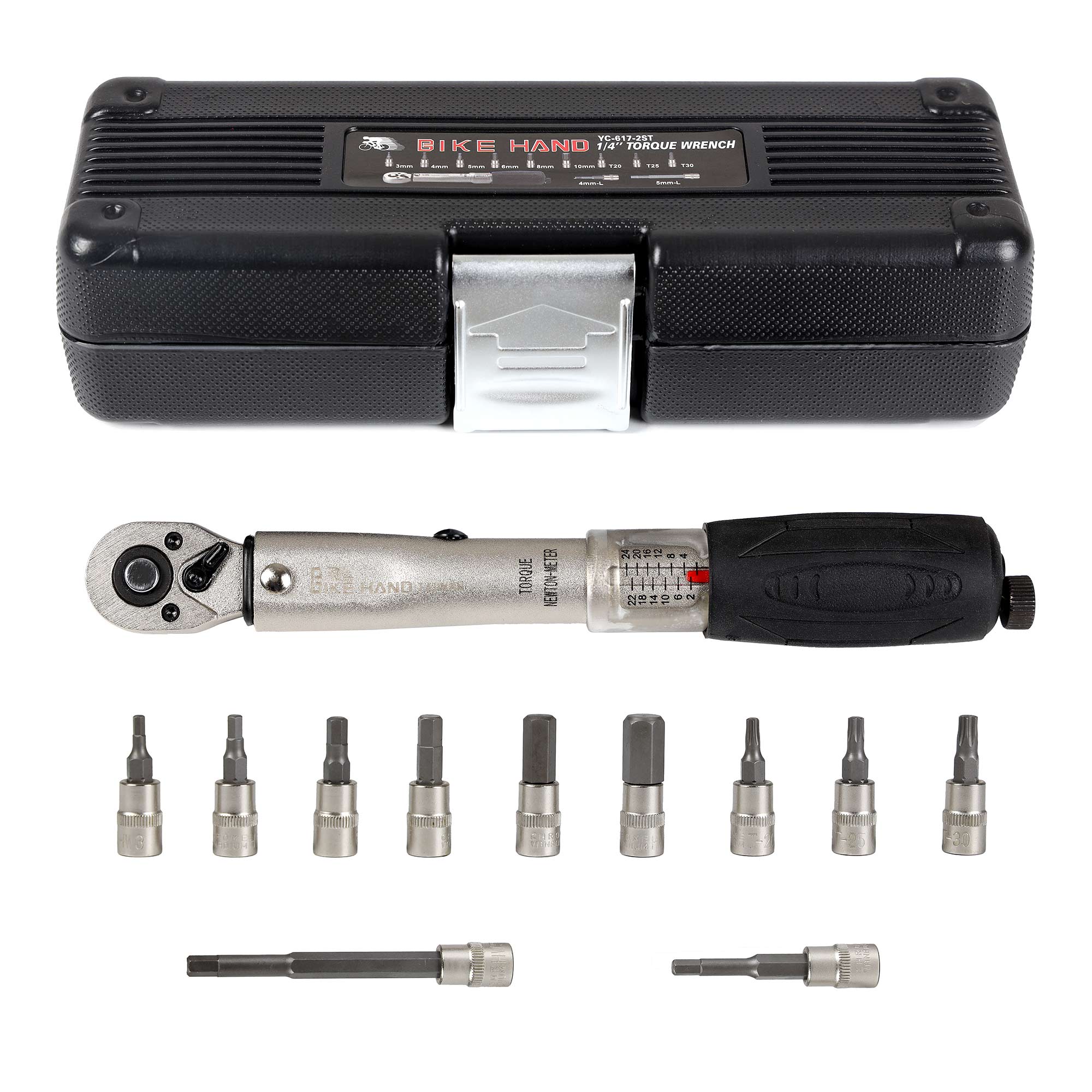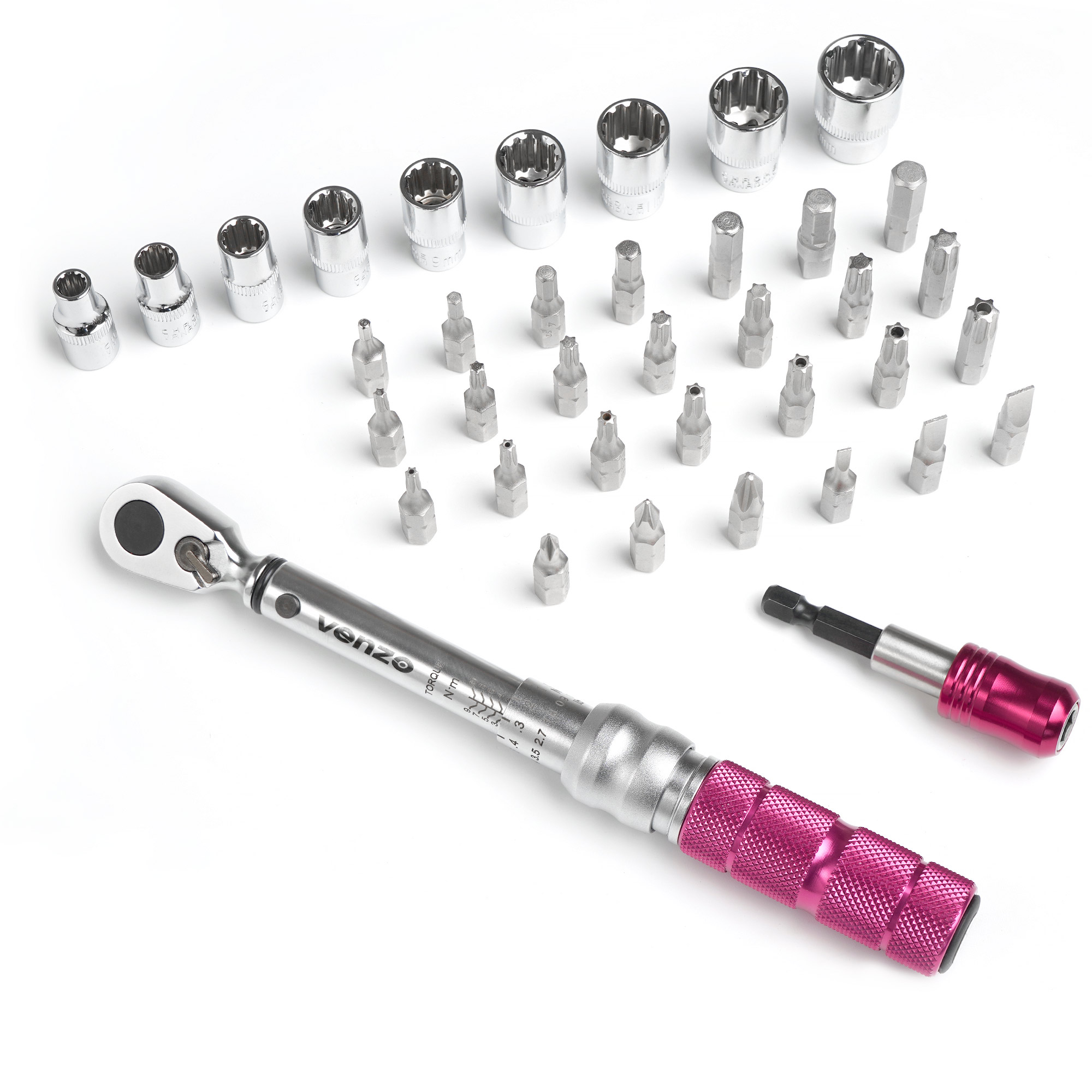Allen key for torque wrench – The Allen key, an indispensable tool for torque wrenches, plays a pivotal role in ensuring accurate and precise tightening applications. With its unique design and versatility, this essential component has become a staple in various industries and sectors.
This comprehensive guide delves into the intricacies of Allen keys for torque wrenches, exploring their types, applications, and proper usage techniques. We will also provide valuable tips on selecting the right Allen key for your specific needs and discuss best practices for maintenance and care.
Overview of Allen Key for Torque Wrench
An Allen key, also known as a hex key or hex wrench, is a specialized tool used in conjunction with torque wrenches to apply precise torque to fasteners. It is a hexagonal-shaped tool that fits into the hexagonal socket head of a bolt or screw.
The Allen key is inserted into the socket and turned using the torque wrench to tighten or loosen the fastener.
The development of the Allen key can be traced back to the early 1900s when it was invented by William G. Allen, an American engineer. Allen initially designed the key for use in the automotive industry, where it quickly gained popularity due to its ability to apply precise torque to fasteners in tight spaces.
History and Evolution
The Allen key has undergone several improvements and modifications over the years. Early Allen keys were made from soft steel, which was prone to bending and breaking under high torque. However, modern Allen keys are typically made from hardened steel or alloy steel, which provides increased strength and durability.
Another significant improvement in Allen keys is the introduction of ball-end keys. Ball-end keys have a spherical end that allows them to be inserted into fasteners at an angle, making it easier to access fasteners in confined spaces.
Discover more by delving into s-works romin evo with mirror further.
Types of Allen Keys
Allen keys, also known as hex keys or hex wrenches, are available in a variety of types to suit different applications. They are primarily categorized based on their materials, sizes, and shapes.
Materials:Allen keys can be made from various materials, including:
- Carbon steel:The most common and affordable type, suitable for general-purpose applications.
- Alloy steel:Stronger than carbon steel, providing better durability and resistance to wear.
- Stainless steel:Resistant to corrosion, making it ideal for applications in harsh environments.
- Titanium:Lightweight and corrosion-resistant, suitable for aerospace and other demanding applications.
Sizes:Allen keys come in a range of sizes, specified by the width across the flats of the hex head. Common sizes include:
- Metric:Measured in millimeters (mm), with sizes ranging from 1.5mm to 12mm.
- Imperial:Measured in inches, with sizes ranging from 1/16 inch to 1/2 inch.
Shapes:Allen keys can have different shapes, including:
- L-shaped:The most common type, with a straight handle and a hex head at one end.
- T-shaped:Similar to L-shaped keys but with a T-shaped handle for increased torque.
- Ball-end:Has a ball-shaped head that allows access to screws at an angle.
- Foldable:Can be folded for compact storage, making them convenient for carrying.
How to Use an Allen Key with a Torque Wrench
Using an Allen key with a torque wrench requires careful attention to detail and proper technique. Here’s a step-by-step guide to ensure accuracy and prevent damage:
Step 1: Select the Correct Allen Key
Choose an Allen key that matches the size and type of the screw or bolt you’re working on. Using an incorrect size or type can damage the fastener or the key itself.
Step 2: Insert the Allen Key into the Torque Wrench
Align the Allen key with the socket or adapter on the torque wrench. Insert it securely and ensure it’s fully engaged to prevent slipping.
Step 3: Set the Desired Torque
Adjust the torque wrench to the specified torque value required for the fastener. Refer to the manufacturer’s instructions or technical specifications for the appropriate torque setting.
Step 4: Position the Wrench and Apply Force
Place the torque wrench perpendicular to the fastener. Apply steady force by pulling or pushing the wrench in the direction of tightening or loosening, as required.
Step 5: Reach the Desired Torque
Continue applying force until you feel or hear a “click” from the torque wrench. This indicates that the desired torque has been achieved.
Step 6: Remove the Allen Key
Once the torque is reached, release the force on the wrench and remove the Allen key from the fastener. Avoid over-tightening or loosening the fastener.
Benefits of Using an Allen Key with a Torque Wrench
Utilizing an Allen key with a torque wrench offers numerous advantages over traditional methods of tightening and loosening fasteners. Here’s why:
- Precise Torque Control:Torque wrenches, when used in conjunction with Allen keys, provide accurate torque application, ensuring fasteners are tightened to the specified torque value. This prevents over-tightening or under-tightening, which can lead to damage or compromised joint integrity.
- Consistency:Allen keys with torque wrenches allow for consistent torque application across multiple fasteners, ensuring uniform tightness and reducing the risk of uneven tightening.
- Accessibility:Allen keys are available in various lengths and shapes, making them suitable for accessing fasteners in confined spaces or hard-to-reach areas.
- Safety:Using a torque wrench with an Allen key reduces the risk of injury, as it eliminates the need for excessive force when tightening or loosening fasteners.
Applications
The benefits of using an Allen key with a torque wrench make it particularly advantageous in applications where precise torque control is crucial, such as:
- Automotive repairs:Tightening bolts and nuts on engine components, suspension systems, and other mechanical parts.
- Bicycle maintenance:Adjusting stem bolts, seat post clamps, and brake calipers.
- Furniture assembly:Tightening screws and bolts on furniture components to ensure stability and durability.
- Electronics repairs:Loosening or tightening screws on electronic devices, such as laptops and smartphones, without damaging sensitive components.
- Precision engineering:Calibrating and adjusting sensitive instruments and equipment that require precise torque values.
Considerations When Choosing an Allen Key

When selecting an Allen key for use with a torque wrench, several factors should be considered to ensure proper functionality and safety.
Material
The material of the Allen key plays a crucial role in its durability and strength. High-quality Allen keys are typically made of hardened steel, which provides excellent resistance to wear and deformation. Other materials, such as stainless steel or chrome vanadium, may also be used, offering varying degrees of strength and corrosion resistance.
Size
The size of the Allen key must correspond to the size of the fastener it will be used on. Using an Allen key that is too small can strip the fastener, while using one that is too large can damage the key or the fastener.
It is important to carefully measure the fastener before selecting an Allen key.
Shape
Allen keys come in various shapes, including L-shaped, T-shaped, and ball-end. The shape of the Allen key should be selected based on the accessibility and clearance around the fastener. L-shaped keys are commonly used for fasteners in open areas, while T-shaped keys provide better leverage in confined spaces.
Ball-end keys allow for access at angles, making them suitable for fasteners in hard-to-reach locations.
Maintenance and Care of Allen Keys: Allen Key For Torque Wrench

To ensure the longevity of Allen keys, proper maintenance and care are essential. Regular cleaning, lubrication, and storage techniques can prevent rust, corrosion, and damage, maintaining their functionality and accuracy.
Remember to click best aero bars for gravel to understand more comprehensive aspects of the best aero bars for gravel topic.
After each use, wipe down the Allen key with a clean, dry cloth to remove any dirt or debris. Avoid using abrasive cleaners or solvents, as they can damage the surface of the key.
Lubrication
To prevent wear and tear, lubricate the Allen key periodically with a light oil or grease. This reduces friction and ensures smooth operation, especially for high-torque applications.
Storage
When not in use, store Allen keys in a dry, cool place. Avoid exposing them to moisture or extreme temperatures, as these can lead to rust and corrosion. A tool chest or organizer with separate compartments for different sizes and types of keys is recommended.
Applications of Allen Keys in Torque Wrenches

Allen keys are versatile tools that are commonly used in conjunction with torque wrenches in various industries and sectors.
Automotive Industry
- Tightening and loosening bolts and nuts on engines, transmissions, and other components.
- Adjusting brake calipers and suspension systems.
Construction Industry
- Assembling furniture and other structures that require precise torque settings.
- Tightening bolts on scaffolding, ladders, and other equipment.
Manufacturing Industry
- Tightening bolts on machinery and equipment to ensure proper alignment and performance.
li>Adjusting torque settings on assembly lines.
Aviation Industry, Allen key for torque wrench
- Tightening bolts and screws on aircraft engines, wings, and other critical components.
- Adjusting torque settings on control systems and hydraulic lines.
Medical Industry
- Tightening bolts on surgical instruments and equipment.
- Adjusting torque settings on medical devices, such as pacemakers and infusion pumps.
Last Recap
In conclusion, Allen keys are indispensable tools for torque wrenches, offering precision, efficiency, and versatility in tightening applications. By understanding the different types, applications, and proper usage techniques, you can effectively harness the power of Allen keys to achieve optimal results.
Remember to consider the factors discussed when selecting an Allen key and follow the maintenance guidelines to ensure its longevity. With the right Allen key and proper care, you can confidently tackle any tightening task with precision and ease.
Commonly Asked Questions
What are the different types of Allen keys?
Allen keys come in various types, including hex keys, ball-end hex keys, and T-handle hex keys. Each type has its specific advantages and applications.
How do I choose the right Allen key for my torque wrench?
When selecting an Allen key, consider the size, material, and shape. Choose the key that matches the screw or bolt you are tightening and is made of durable material like steel or chrome vanadium.
How do I properly use an Allen key with a torque wrench?
Insert the Allen key into the screw or bolt and align it properly. Apply the torque wrench to the Allen key and tighten it to the desired torque specification.
How do I maintain and care for Allen keys?
Clean Allen keys after use to remove dirt and debris. Store them in a dry place to prevent rust. Lubricate them occasionally to ensure smooth operation.
